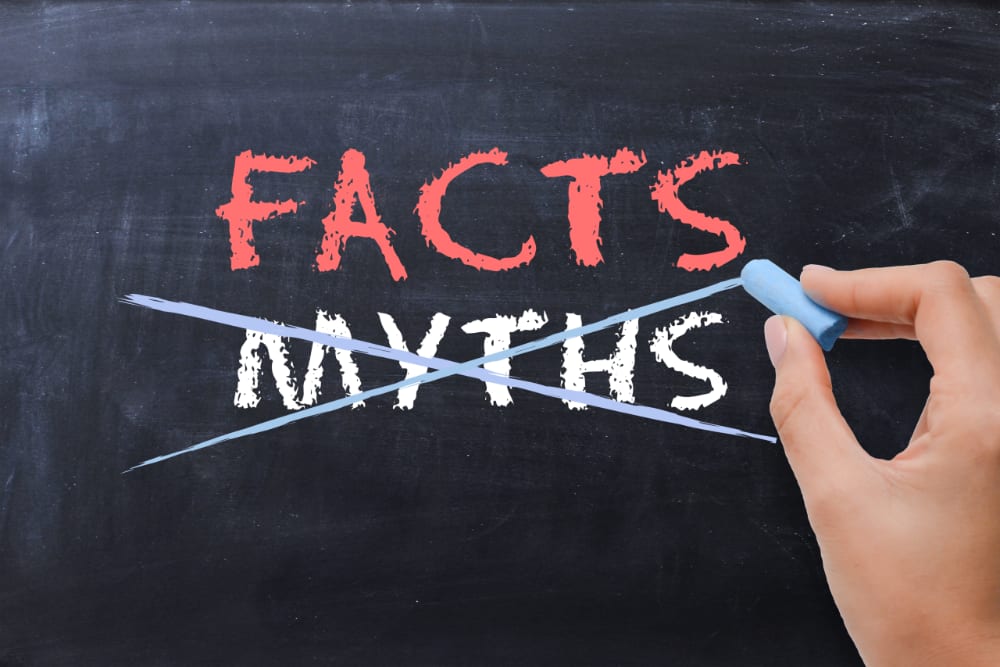Debunking Common Probate Myths
The passing of a loved one is a difficult time for all involved. Emotions can run high, and stress levels are not helped by the time and paperwork involved in carrying out their last wishes and organising their assets and estate. It’s easy to be confused by the unfamiliar legal jargon, forms and processes and there are many unhelpful and factually incorrect articles on the internet to make things worse.
To help you navigate your way through, this article examines and debunks some common myths so you have a better understanding of the probate process.
Probate Myth 1 – Every estate requires probate
When people ask whether an estate needs to ‘go to Probate’ they are usually referring to the requirement to obtain a Grant of Representation. This is the formal order from the Court confirming or appointing personal representatives to deal with the estate. However, this may not always be required and depends on the size and complexity of the estate.
For example, joint assets (including property held as Joint Tenants) pass automatically to the survivor on death.
If bank accounts are the only other asset, a simple Estate Administration may be all that is needed to access the money. If the deceased made a Will, the appointed Executors can go to the bank where the account is held (with the death certificate, ID and attested Will) and then withdraw the money and close the account. Banks may allow this procedure where there is no Will but, strictly speaking, a Grant of Representation should be obtained to formally appoint an Administrator to deal with the estate. Even if there is a Will, a Grant of Probate will be required for larger investments and to sell property.
Probate Myth 2 – The spouse gets everything if there is no Will
It is a common misunderstanding that the deceased’s entire estate passes to their husband, wife or civil partner on death.
Joint assets do pass to the surviving joint owner but, if there are children, the surviving spouse is only entitled to the first £270,000 of the estate plus half of the remainder then the rest is divided equally between the children.
It is also important to note that this only applies to married couples – unmarried partners are not entitled to any share of the estate under the rules of intestacy.
To read more on this visit our What happens if you don’t make a Will? page (opens in a new window).
Probate Myth 3 – A Will is final
Unfortunately, it is not uncommon for someone to disagree with the provisions of a Will. This can lead to an inheritance dispute in the courts, a lengthy Estate Administration process or assets not being distributed as the deceased had wished.
Even if a Will is correctly drafted and executed, with the full understanding and knowledge of the person who wrote it, it may be possible to bring a claim under the Inheritance (Provision for Family and Dependents) Act 1975. This allows certain people to make claims against the estate if they can prove that:
- They were financially dependent on the deceased
- The deceased did not provide for them adequately in the Will
To read more about this, visit our Inheritance Disputes page (opens in a new window).
There is no guaranteed way to avoid a dispute, but to minimise the risk it is advisable to have a detailed Will written, signed and witnessed when you are of sound mind and update it, if needed, to ensure the distribution of assets is as you planned.
There may also be situations where the beneficiaries mutually agree to vary the provisions in a Will, usually to reduce a tax liability. The beneficiaries that are adversely affected by any changes must agree and then a Deed of Variation can be executed, following which the tax liability is recalculated accordingly. This must happen within two years of the date of death.
Finally, there may also be situations where redistribution of the estate is mutually agreed as the needs of the beneficiaries have changed since the Will was made.
Probate Myth 4 – You need the original Will to obtain a Grant of Probate
It is correct that the Probate Registry normally require the original Will to issue a Grant of Probate but it is possible to use a copy of the Will where the original cannot be located.
This takes longer as it cannot be guaranteed that the copy Will is valid. There is a complex procedure to follow and a court order will be required.
We would always recommend that the original Will is used where it is available, and advise that you store your Will in a safe and secure location. At Backhouse Solicitors we offer a Will storage service and we register all Wills that we store with the National Wills Register so potential Executors are able to find your Will should your copy go missing and you don’t tell them that you have stored the original with us.
Probate Myth 5 – All Probate providers are the same
There is a lot that families must go through when a loved one passes away, and it is important to find the right solicitor that will help and support you.
The cost for probate services can vary widely, so it is important to shop around for quotes from several solicitors. Be clear what level of help you need, and think carefully about your expertise and available time to fill in forms, deal with banks, calculate Inheritance Tax if payable and so forth. Typical levels of advice would be:
- Ad hoc advice only, supporting you as you do the probate
- your solicitor applies for the Grant of Probate and then leaves the rest to the executors
- your solicitor applies for the Grant of Probate, takes care of any Inheritance Tax and completes a full estate administration, distributing the assets for you
Whatever level you choose, ensure that your advisers are properly qualified and insured for probate work. There have been several high profile cases of unregulated businesses going bust and leaving beneficiaries substantially out of pocket.
Backhouse Solicitors are here to help
At Backhouse Solicitors, our team of expert Probate solicitors provide advice with understanding and sensitivity. We understand that this is an extremely difficult time for the relatives of the deceased, and we will do our utmost to make the process as straightforward and stress-free as possible.
To find out more about how we can help you, or simply to ask us a question, contact us today and book a free initial consultation with one of our friendly team.
Tel: 01245 893400
Email: info@backhouse-solicitors.co.uk
Visit: 17 Duke Street, Chelmsford, CM1 1JU
Or send us a message through the Contact Us page on this website.






